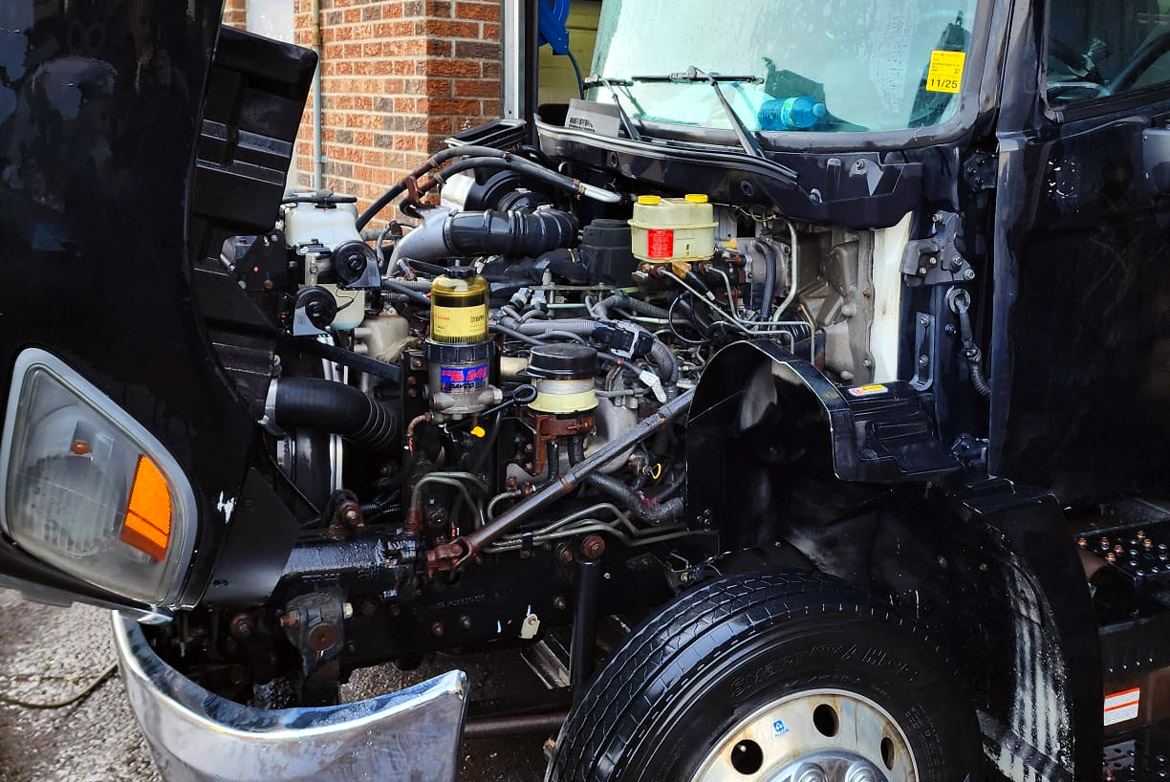Why MOT Safety Inspections Matter for Commercial Trucks
When it comes to maintaining the safety, reliability, and compliance of commercial vehicles, MOT safety inspections play a crucial role—especially for fleet managers and business owners. When you bring your Isuzu, Hino, or Mitsubishi Fuso truck for an MOT inspection at Vaughan’s Tire Domain, it is not simply about ticking a box for us—it’s about protecting your drivers, your investment, and everyone sharing the road with your trucks.
An MOT safety inspection for commercial trucks is a comprehensive, standardized process designed to ensure vehicles meet specific roadworthiness and environmental standards. Unlike regular vehicle maintenance, this inspection focuses strictly on safety and legal compliance, which is essential for heavy-duty vehicles like Mitsubishi Fuso trucks. The stakes are high; failing to meet inspection standards can result in costly downtime, hefty fines, and even jeopardized contracts. That’s why Tire Domain emphasizes the importance of a thorough pre-inspection and working with certified professionals for all commercial fleet needs.
During a Hino, Isuzu, Mitsubishi Fuso, or other truck’s MOT inspection at Vaughan’s Tire Domain, a wide range of critical components are scrutinized. The inspection covers everything from brakes, tires, wheels, and suspension to steering mechanisms, lighting, and reflectors. Particular attention is given to the condition of seat belts, mirrors, windshield wipers, and the truck’s body structure. Emission systems also undergo rigorous checks as part of our Isuzu, Hino, Mitsubishi Fuso, and other make trucks emission inspection at our Vaughan repair centre to ensure the vehicle is compliant with emissions limits.
One of the most common reasons that trucks fail their safety inspection is faulty or worn-out brakes, followed closely by issues with lights and signaling equipment. Tire wear, insufficient tread depth, and steering defects are also frequent culprits. Problems with emission systems might trigger a failure during an emission inspection, highlighting the need for regular maintenance and preventive checks which Tire Domain strongly advocates.
Preparing for an MOT safety inspection requires a proactive approach. Fleet managers and truck owners are encouraged to conduct regular internal safety checks, addressing any known issues well before the scheduled inspection. Keeping up with routine maintenance and monitoring for warning signs—such as unusual braking behavior, flickering lights, or excessive exhaust smoke—are small steps that can lead to a seamless experience during your Hino, Isuzu, Mitsubishi Fuso, or other make safety inspection at Vaughan’s Tire Domain. We also recommend maintaining detailed service records, which can assist technicians during the official inspection, reducing unnecessary delays or repeat visits.
The process for commercial vehicle inspections differs in several key areas compared to passenger vehicles. Commercial trucks like the Mitsubishi Fuso often face stricter inspection criteria due to their size, use, and mileage. For example, when you bring your truck from Isuzu, Hino, Mitsubishi Fuso, or other makes for safety inspection at Vaughan’s Tire Domain, it will undergo checks on stability, load security, and exhaust emissions to a much higher standard than typical passenger cars. This thoroughness ensures commercial trucks are safe to operate in heavy traffic and can withstand the rigors of demanding transport duties.
Choosing a professional and certified MOT inspection service, such as the experts at Tire Domain, brings peace of mind and operational confidence. Not only do certified inspectors understand the intricacies of safety inspection requirements, but they are also equipped to perform detailed Hino, Isuzu, Mitsubishi Fuso, and other make trucks emission inspections in Vaughan and offer actionable advice for immediate remediation if issues arise. Ultimately, regular and reliable MOT safety inspections safeguard both business operations and public safety, strengthening trust with clients and maintaining a well-respected fleet.

